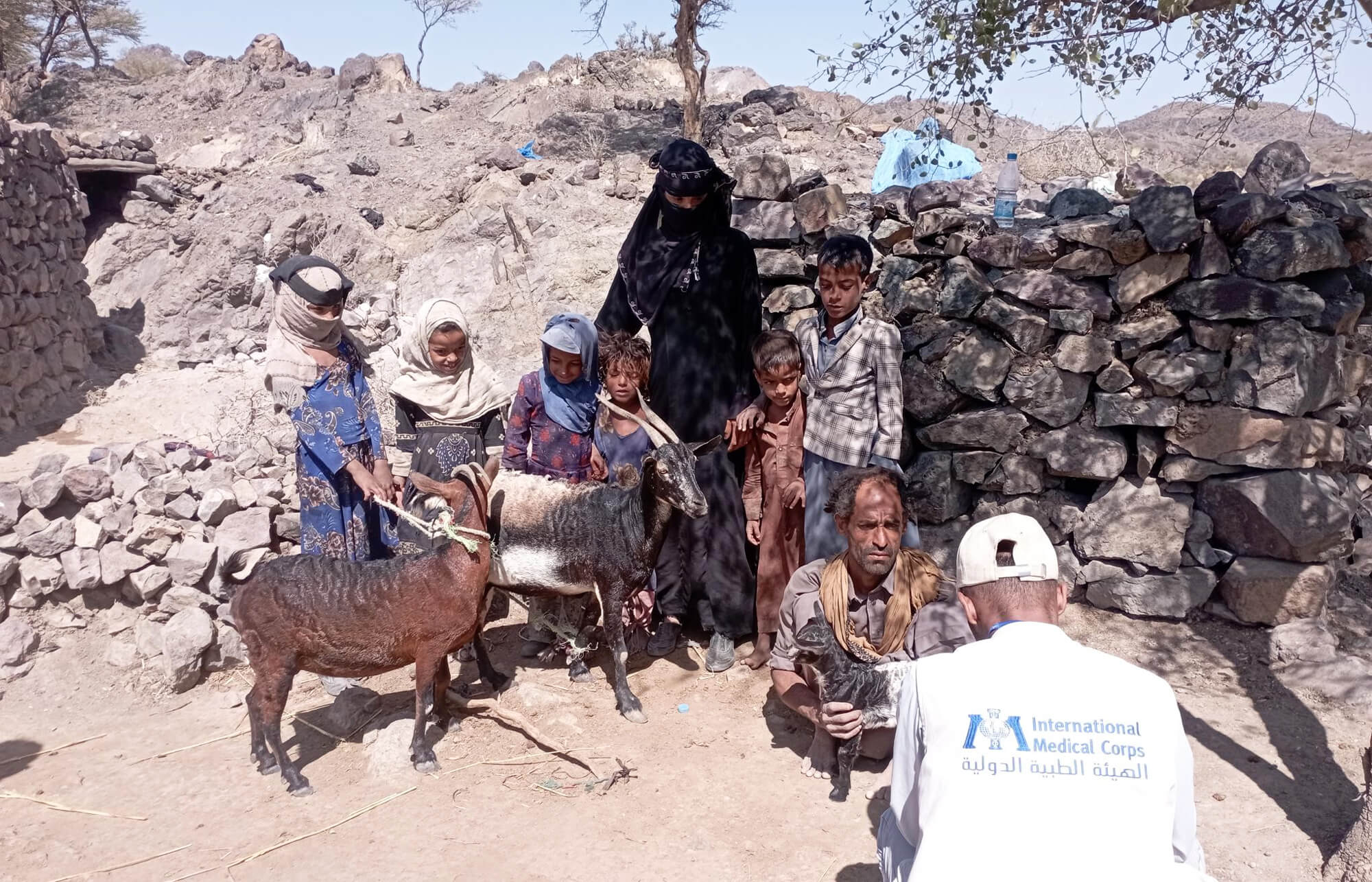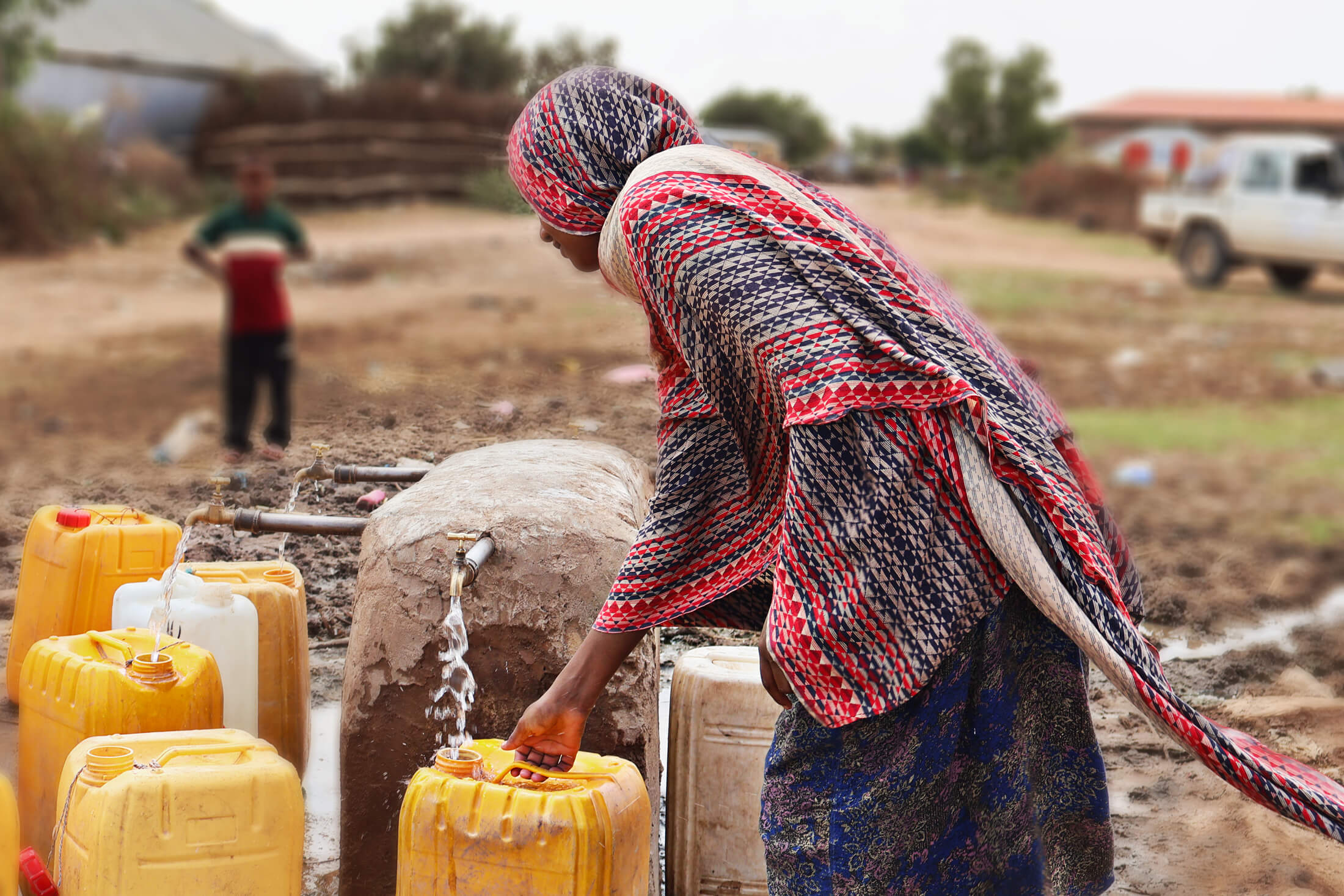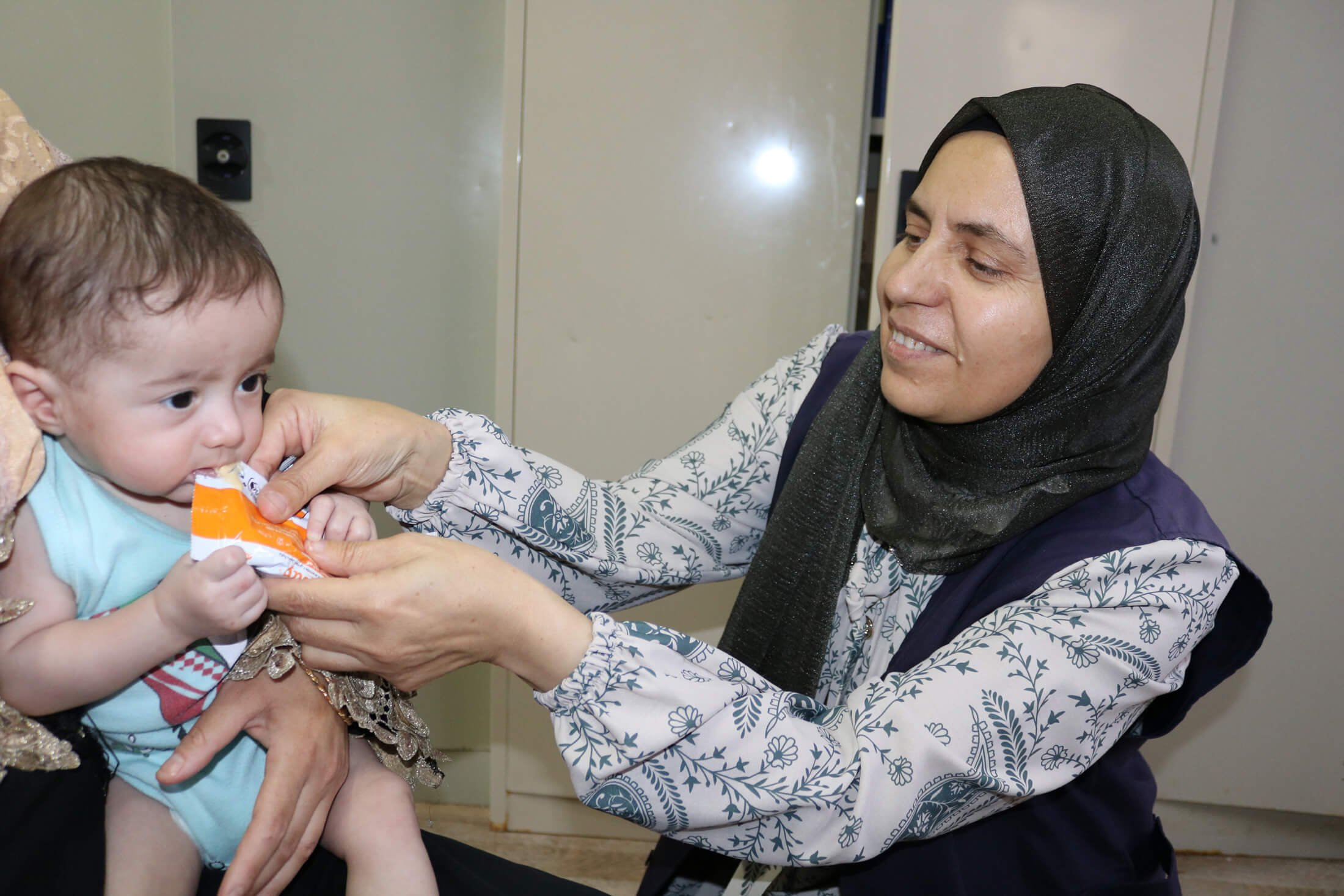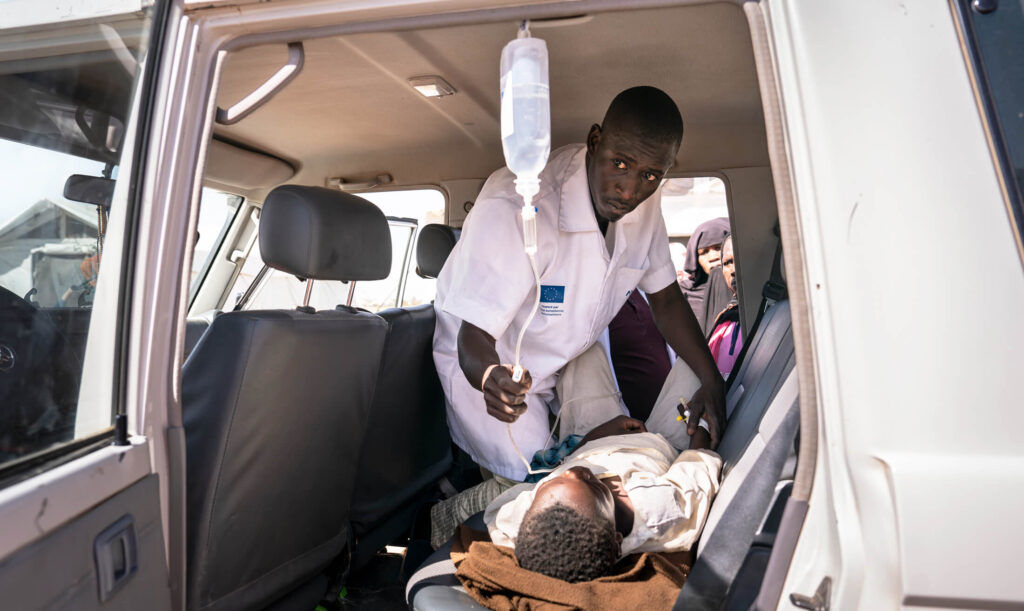Bringing Healthcare to Vulnerable Communities in Chad
Every month, thousands of Sudanese cross into Chad, fleeing civil war in their home country. Many find shelter in refugee camps such as Dougui, located in Ouaddaï province, in eastern Chad. Life in the camp is challenging, but International Medical Corps is there to help. Our teams provide integrated healthcare and nutrition services to refugees, returnees and host communities. At our clinic, we provide pregnant women with routine immunisations, treat children for malnutrition and provide access to essential medications and maternal health services to families.




In recent weeks, our teams have also responded to a deadly cholera outbreak in Dougui camp, establishing a 40-bed treatment centre and launching hygiene awareness campaigns to prevent further spread. From gathering water to receiving check-ups, daily life in the camp reflects both the hardship and the resilience of the people we serve.


These services are more than just medical care—they are a lifeline. With limited resources and growing needs, your support makes it possible to deliver vaccines, support safe pregnancies and ensure that families have access to the care they need to survive.
Assisting Women Around the World
In countries like Iraq, Pakistan and Yemen, women displaced by conflict often face more than just the loss of home and safety—they lose their livelihoods, independence and sense of identity. We’re helping these women reclaim their futures by providing skills-based training and cash assistance programmes. Whether it’s sewing classes in refugee camps or small grants to start livestock businesses, these initiatives meet women where they are and help them move from crisis to self-reliance.


In Pakistan, Afghan refugee women have used sewing skills to launch home-based businesses, gaining both income and respect within their households. In Yemen, Mona—left to care for six children after losing her husband—used a small cash grant to buy goats, which gave her family a stable source of food and income. Such stories show how targeted support doesn’t just meet immediate needs—it builds long-term resilience. By investing in women’s economic empowerment, we’re helping entire families and communities recover, grow and thrive.

Building Sustainable Futures in Ethiopia
In Ethiopia, conflict and displacement have left countless families without access to basic services. From the conflict-ridden areas of Kafta Humera to refugee camps in the Somali region, we’re working to restore health, dignity and stability. In places such as the Mykoma Displacement Center, families like Tigabe’s—who fled violence with nothing but hope—are receiving lifesaving care. Our teams provide medical services, mental health counselling, and clean water and hygiene supplies, helping tens of thousands of people in need. These efforts enable families to stay healthy, emotionally resilient and on the path to recovery.


Across refugee camps in Ethiopia, we’re creating safe spaces for women and girls, offering mental health support and protection services, and educating communities about preventing violence against women and girls. Our outreach campaigns and home visits have reached thousands with vital information and care, while our specialised programmes help adolescent girls build confidence and community.

We’ve also ensured daily access to safe drinking water for more than 263,000 people across two communities, improving public health and environmental sustainability. And our nutrition programmes have helped thousands of children and pregnant women recover from malnutrition. These interventions are meeting urgent needs and helping communities thrive.
Supporting Health Access Amid Conflict in the DRC
In the Democratic Republic of the Congo (DRC), years of armed conflict have forced millions of people to flee their homes, leaving them with limited access to healthcare, food and safety. In response, we launched the Tumaini project—named after the Swahili word for “hope”—to meet the urgent health and nutrition needs of communities displaced by violence. Through mobile medical clinics, our teams are delivering emergency care directly to people in the Fizi health zone—one of the most conflict-affected areas in the country.


With more than 271,000 health consultations already provided, the project is helping people manage chronic conditions, recover from illness and access medications they otherwise couldn’t afford.


Tackling Malnutrition in Jordan
In Jordan’s refugee camps, thousands of families who fled Syria when the war began in 2011 are still working to rebuild their lives. Many arrived with little more than what they could carry, and after years of displacement, children and mothers remain especially vulnerable. Poor diets, crowded living conditions and limited access to health services mean that malnutrition is a constant threat—one that can cause long-term health problems if left untreated.

To improve the health of Syrian refugees in Jordan, International Medical Corps runs a nutrition clinic in Zaatari Camp. Here, trained staff carefully monitor children’s growth, using tools to check for early signs of malnutrition. Mothers receive guidance on breastfeeding and child-feeding practices, while children who are undernourished are given the specialised food and treatment they need to recover. Pregnant and lactating women also receive extra support, helping them stay strong and give their babies a healthier start in life.



We’ve also provided a wide range of services in Azraq Camp for more than a decade, ensuring that even the most vulnerable families have access to the care and support they need. By catching malnutrition early and offering treatment and education, these programmes not only save lives but also give children a better chance to grow and thrive—even in the middle of crisis.
Learn more about International Medical Corps
Follow International Medical Corps on Facebook, Twitter, Instagram, LinkedIn, TikTok, Threads, Bluesky and YouTube.
Are you a journalist looking for information?
International Medical Corps is a global first responder that delivers emergency medical and related services to those affected by conflict, disaster and disease, no matter where they are, no matter the conditions. We also train people in their communities, providing them with the skills they need to recover, chart their own path to self-reliance and become effective first responders themselves. Established in 1984 by volunteer doctors and nurses, we are a nonprofit with no religious or political affiliation, and now have more than 8,000 staff members around the world, 96% of whom are locally hired. Since our founding, we have operated in more than 80 countries, and have provided more than $4.2 billion in emergency relief and training to communities worldwide.
Our staff includes experts in emergency medicine, infectious disease, nutrition, mental health, maternal and infant health, gender-based violence prevention and treatment, training, and water, sanitation and hygiene, all within the humanitarian context.
To arrange an interview on or off the record, contact our Media Relations team at media@internationalmedicalcorps.org.
